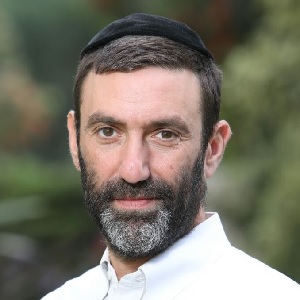A Few Minutes With Professor Eugene Kontorovich

International law expert, Professor Eugene Kontorovich, on surprise US settlement decision

Over the past several years, Professor Eugene Kontorovich, an international law expert, has advised US officials on the question of Jewish settlements in the West Bank, and their legality. With last week’s announcement by Secretary of State Mike Pompeo that the United States no longer considers Israeli settlements illegal “per se,” we talked with Kontorovich about what the reversal of US policy means and how it might change opinions on Israeli settlements in international forums and courts.
Prof. Kontorovich received his law degree from the University of Chicago and is currently director of the Center for International Law and the Middle East at George Mason Scalia School of Law. He is also a scholar at Kohelet Policy Forum, a think tank in Jerusalem.
Why is the recent change of policy announced by Secretary Pompeo important?
It’s important because it undermines the central narrative used to delegitimize Israel’s presence in both eastern Jerusalem and in Yesha. It’s hard to tell Jews as a moral matter that they can’t live in the Old City of Jerusalem or in Hebron. In order to try to convince Jews that they had no right to live in these places, they tried to couch this as a general rule of international law, applicable to everyone. What the Trump Administration is saying is that no, these are not in fact the rules, these are made-up rules that were only applied to Israel.
It’s quite important to note that the notion that settlements are illegal had not been applied anywhere else since adoption of the Geneva Conventions of 1949. When you talk to people about legal arguments behind the idea that settlements are a war crime, what they typically invoke is an “international consensus.” [They say] the international community agrees, so how can you say it’s legal if all the countries of the world say it’s illegal? They want to appeal to consensus. To put it in terms that your readers might appreciate, they want to say that we go with the majority, which is by the way not how we hold in international law. There is no international law principle that we hold like the majority. International law is not a popularity contest.
So when the most important country in the world and its State Department say we disagree, it’s impossible to say there’s an international consensus anymore. When everyone says we all have to fall in line, the only way that can be broken is if someone stands up and says, that’s not how we regard this. By so doing you actually destroy the consensus, which is itself the biggest argument for the consensus.
It sounds like you are saying this consensus is more political than legal.
We can tell it was political because this rule had never been applied to condemn people living in any other territory, occupied or disputed, before or after. This is what lawyers call a one-way ticket, just for this ride only.
Only for Israel?
Yes.
What does the change mean as far as US policy toward building in the West Bank?
If you don’t think it’s a crime, you don’t have to protest every time someone builds an apartment in Efrat or Ramat Shlomo. It doesn’t rule out the idea of a diplomatic settlement, but in any diplomatic settlement, the guiding principle is not that Israel is an invading occupier, and has to give back what they stole. If the principle is that Israel took all of this from the Palestinians, then the very least they can do is give everything back and then some. By undermining that argument, it opens up room for flexibility in negotiations with the Palestinians.
The Europeans are not going to go along right away. It took many years to build this narrative of illegality. But crucially, I think even many supporters of Israel who now say “How can we argue that this is legal, when everyone says it’s illegal?” now see that there’s a huge exception to that “everyone” and we should not despair of changing their minds.
You actually see the Europeans going along with this at some point?
An increasing number of European countries are going to be much less vocal in their criticism of Israeli polices. We saw [this past week] that the European Union could not make a joint statement [condemning the US decision, because Hungary objected]. Countries had to make individual statements, and only five EU countries did so.
Will future administrations’ American presidents have to abide by this policy change?
A future Democratic administration could change it. Nothing in this policy commits America to not opposing Jews living in the settlements. But I think as a political matter it’s much harder to say that Jews can’t live there, or that it’s a neutral application of the law. And if they would reverse it, I think it becomes evident to people that this is a political matter. It undermines the value of this as a legal argument if the international law seemingly changes with every presidency. So there’s very little value in Democrats reversing this, but there’s nothing stopping them.
Was the announcement made now to help Bibi?
The timing is coincidental. It has nothing to do with Bibi and the elections, it has nothing to do with Gaza. This is years in the making. A narrative has emerged in the media in recent months that Trump is turning his back on Israel. They say he did a couple of good things and now he’s just as bad as anyone else. That narrative shows how [the media] is trying to discredit Trump with Jewish voters. Here, this is something that is of existential interest to Israel, and something that no president has done before. I think Trump has solidified his position as by far the most pro-Israel president of all time.
Was Ambassador Friedman the lead on this?
Yes, and of course Secretary Pompeo.
Did you get the sense that this was personally, as well as politically, important to Ambassador Friedman?
No, I think it was a principled position. Let me put it this way: When the Obama administration failed to veto Security Council Resolution 2334, that move was opposed by almost the entire Senate, including an overwhelming number of Democrats. It was extremely unpopular. Even when he was president-elect, Trump said this is not the policy of the US, we’re going to do everything we can to reverse 2334. This is a very strong and direct pushback on 2334.
Finally, does this help Israel at the UN?
Not immediately. The UN is not a legal body. It’s not based on law, it’s based on politics. I think if the ICC [International Criminal Court] were to indict Israeli officials, as I expect them to do, for the war crime of letting Jews live in Yesha, they could still do it. But no one has ever been indicted or prosecuted for the crime of letting people live somewhere. No one has ever been tried for it. Thus it is important for the ICC’s narrative in creating this new crime of Jews living somewhere to say that the whole international community agrees, and now that is not the case.
(Originally featured in Mishpacha, Issue 787)
Oops! We could not locate your form.













